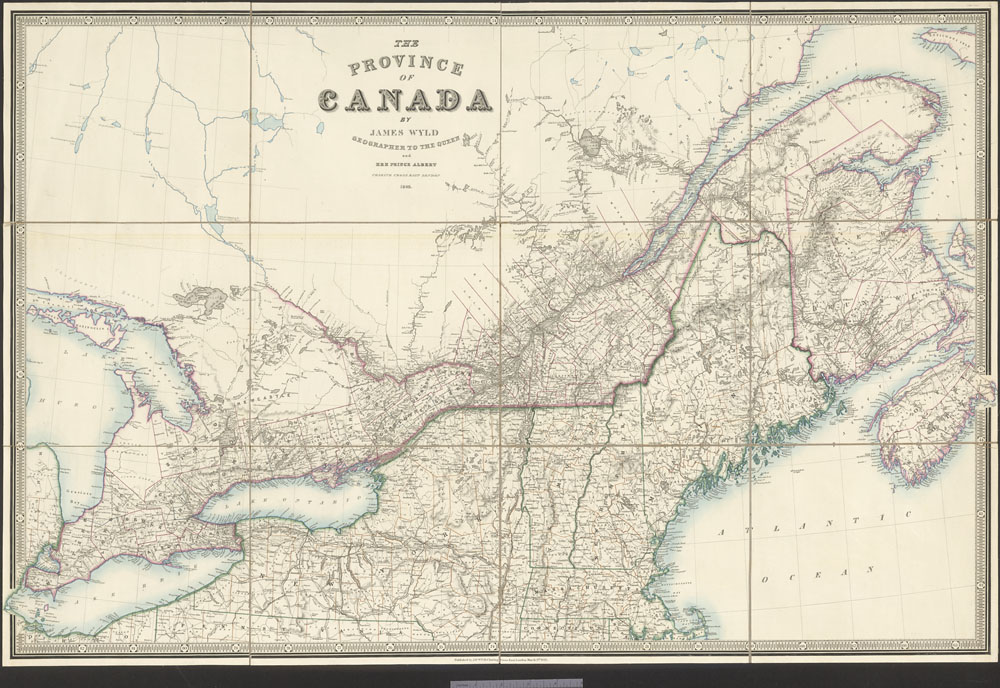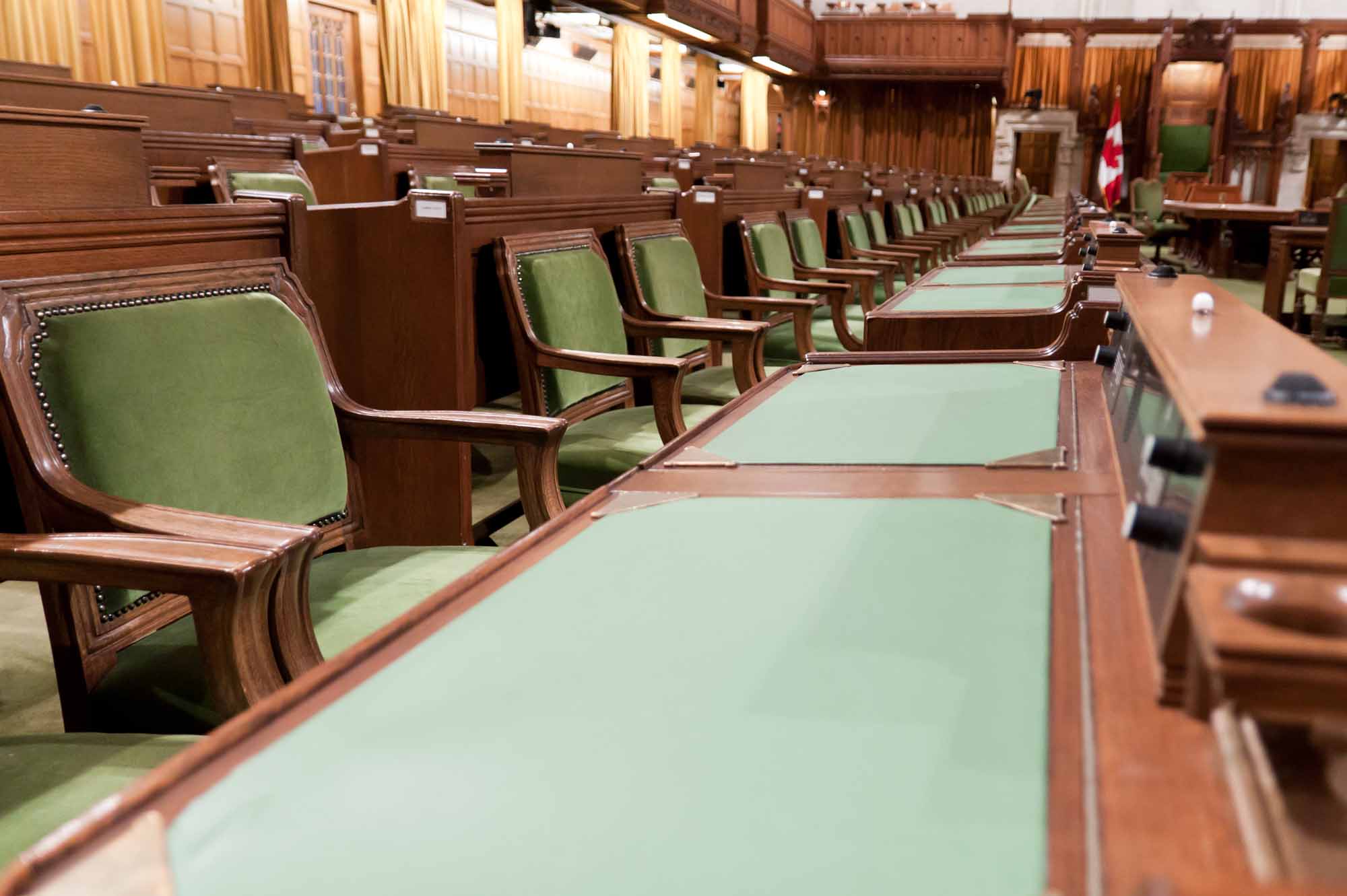Article
Public Ownership
Public ownership refers to government provision of goods and services; the commercial or business activities of the STATE.

Enter your search term
Signing up enhances your TCE experience with the ability to save items to your personal reading list, and access the interactive map.
Create AccountArticle
Public ownership refers to government provision of goods and services; the commercial or business activities of the STATE.
"https://www.thecanadianencyclopedia.ca/images/tce_placeholder.jpg?v=e9dca980c9bdb3aa11e832e7ea94f5d9" // resources/views/front/categories/view.blade.phphttps://www.thecanadianencyclopedia.ca/images/tce_placeholder.jpg?v=e9dca980c9bdb3aa11e832e7ea94f5d9

Article
The public service, also known as the civil service, is the public BUREAUCRACY comprising, in Canada, departmental organizations that support the political executive in the development, implementation and enforcement of government policies.
"https://www.thecanadianencyclopedia.ca/images/tce_placeholder.jpg?v=e9dca980c9bdb3aa11e832e7ea94f5d9" // resources/views/front/categories/view.blade.phphttps://www.thecanadianencyclopedia.ca/images/tce_placeholder.jpg?v=e9dca980c9bdb3aa11e832e7ea94f5d9

Macleans
Ah, Quebec.This article was originally published in Maclean's Magazine on October 14, 2002
"https://www.thecanadianencyclopedia.ca/images/tce_placeholder.jpg?v=e9dca980c9bdb3aa11e832e7ea94f5d9" // resources/views/front/categories/view.blade.phphttps://www.thecanadianencyclopedia.ca/images/tce_placeholder.jpg?v=e9dca980c9bdb3aa11e832e7ea94f5d9

Article
Each day the House of Commons is in session, 45 minutes is allocated for members of Parliament to ask questions of government ministers and of the prime minister. Question Period — formally called Oral Questions — is an important method of ensuring that the government answers to the people, represented by the opposition parties, and is held accountable for its actions.
"https://www.thecanadianencyclopedia.ca/images/tce_placeholder.jpg?v=e9dca980c9bdb3aa11e832e7ea94f5d9" // resources/views/front/categories/view.blade.phphttps://www.thecanadianencyclopedia.ca/images/tce_placeholder.jpg?v=e9dca980c9bdb3aa11e832e7ea94f5d9

Article
Reciprocity was a free trade deal between the United States and Canada. (Reciprocity is when both sides give and receive.) The deal reduced import duties and tariffs on certain goods traded between the two countries. It was in effect from 1854 to 1866. It was at times a source of great controversy in both countries. It was replaced in 1878 by the National Policy. It was a more protectionist policy. It imposed tariffs on imported goods. This shielded manufacturers in Canada from US competition. A more limited reciprocity deal was reached in 1935. It ended in 1948 after both countries signed the General Agreement on Tariffs and Trade (GATT). This article is a plain-language summary of Reciprocity. If you would like to read about this topic in more depth, please see our full-length entry: Reciprocity.
"https://www.thecanadianencyclopedia.ca/images/tce_placeholder.jpg?v=e9dca980c9bdb3aa11e832e7ea94f5d9" // resources/views/front/categories/view.blade.phphttps://www.thecanadianencyclopedia.ca/images/tce_placeholder.jpg?v=e9dca980c9bdb3aa11e832e7ea94f5d9

Article
Regional government is a structure created by the provinces, in particular Ontario, Québec and British Columbia, by which municipalities are grouped under a regional political and administrative structure.
"https://www.thecanadianencyclopedia.ca/images/tce_placeholder.jpg?v=e9dca980c9bdb3aa11e832e7ea94f5d9" // resources/views/front/categories/view.blade.phphttps://www.thecanadianencyclopedia.ca/images/tce_placeholder.jpg?v=e9dca980c9bdb3aa11e832e7ea94f5d9

Article
Representation by population is a political system in which seats in a legislature are allocated on the basis of population. It upholds a basic principle of parliamentary democracy that all votes should be counted equally. Representation by population was a deeply divisive issue among politicians in the Province of Canada (1841–67). Nicknamed “rep by pop,” it became an important consideration in the lead up to Confederation. (See also: Representative Government; Responsible Government.)
"https://d3d0lqu00lnqvz.cloudfront.net/media/media/bf6a8447-8306-4749-bb63-2f6129eb20a6.jpg" // resources/views/front/categories/view.blade.phphttps://d3d0lqu00lnqvz.cloudfront.net/media/media/bf6a8447-8306-4749-bb63-2f6129eb20a6.jpg

Article
Representative government is a political system in which an elected assembly governs. Members of the assembly act as the people's representatives in government.
"https://d3d0lqu00lnqvz.cloudfront.net/media/media/b82af0bf-c28c-4f44-be97-09df6c7f769a.jpg" // resources/views/front/categories/view.blade.phphttps://d3d0lqu00lnqvz.cloudfront.net/media/media/b82af0bf-c28c-4f44-be97-09df6c7f769a.jpg

Article
Responsible government refers to a government that is responsible to the people. In Canada, responsible government is an executive or Cabinet that depends on the support of an elected assembly, rather than a monarch or their representatives. A responsible government first appeared in Canada in the 1830s. It became an important part of Confederation. It is the method by which Canada achieved independence from Britain without revolution.
"https://d3d0lqu00lnqvz.cloudfront.net/media/media/ba6bdff6-574a-4697-ac95-afdcc5ddfcc9.jpg" // resources/views/front/categories/view.blade.phphttps://d3d0lqu00lnqvz.cloudfront.net/media/media/ba6bdff6-574a-4697-ac95-afdcc5ddfcc9.jpg

Article
A sophisticated estate that incorporated the primary elements of English landscape style, Rideau Hall was thought to be in keeping with the stature and lifestyle of the Queen's representative in Canada.
"https://d3d0lqu00lnqvz.cloudfront.net/media/media/65601146-87c4-4c0a-9747-e9ea04708cd6.jpg" // resources/views/front/categories/view.blade.phphttps://d3d0lqu00lnqvz.cloudfront.net/media/media/65601146-87c4-4c0a-9747-e9ea04708cd6.jpg

Article
The Quiet Revolution (1960–1970) gave rise to secularism within Quebec society. The latter became both secular by widening the separation between Church and State, as well as non-confessional by removing religion from institutions. However, the issue of secularism is still a matter for debate. In June 2019, the passage of the Act Respecting the Laicity of the State fueled many discussions about the place of religion in public domain.
"https://d3d0lqu00lnqvz.cloudfront.net/media/new_article_images/Corridart/1059px-Pierre_Ayot,_La_croix_du_Mont-Royal_(réplique),_2016_(30216916871).jpg" // resources/views/front/categories/view.blade.phphttps://d3d0lqu00lnqvz.cloudfront.net/media/new_article_images/Corridart/1059px-Pierre_Ayot,_La_croix_du_Mont-Royal_(réplique),_2016_(30216916871).jpg
,_2016_(30216916871).jpg)
Macleans
Even Lucien Bouchard's glowering presence could not entirely sour the mood. In announcing a deal to overhaul the way Ottawa and the provinces work together on social programs, Prime Minister Jean Chrétien spoke proudly of "a new departure.This article was originally published in Maclean's Magazine on February 15, 1999
"https://www.thecanadianencyclopedia.ca/images/tce_placeholder.jpg?v=e9dca980c9bdb3aa11e832e7ea94f5d9" // resources/views/front/categories/view.blade.phphttps://www.thecanadianencyclopedia.ca/images/tce_placeholder.jpg?v=e9dca980c9bdb3aa11e832e7ea94f5d9

Article
Socialism is a political doctrine that criticizes the existence of social, economic and political inequality in society. Seeking to lessen class inequality, socialists call for a redistribution of power from the affluent owners to the working class.
"https://thecanadianencyclopedia.ca/images/tce_placeholder.jpg?v=e9dca980c9bdb3aa11e832e7ea94f5d9" // resources/views/front/categories/view.blade.phphttps://thecanadianencyclopedia.ca/images/tce_placeholder.jpg?v=e9dca980c9bdb3aa11e832e7ea94f5d9

Article
In May 1983 British Columbians voted the Social Credit Party, headed by William BENNETT, into office. Two months later, on July 7, the Socreds introduced their so-called Restraint Budget, accompanied by 26 prospective bills.
"https://www.thecanadianencyclopedia.ca/images/tce_placeholder.jpg?v=e9dca980c9bdb3aa11e832e7ea94f5d9" // resources/views/front/categories/view.blade.phphttps://www.thecanadianencyclopedia.ca/images/tce_placeholder.jpg?v=e9dca980c9bdb3aa11e832e7ea94f5d9

Article
Under Canada’s constitutional monarchy, the sovereign is head of state, the legal foundation of the executive branch of government and one part of Parliament — along with the Senate and House of Commons. The current sovereign of Canada is King Charles III. The sovereign is represented in Canada by the governor general, lieutenant-governors and territorial commissioners and acts on the advice of the prime minister, the head of government.
"https://d3d0lqu00lnqvz.cloudfront.net/KingCharlesIII.jpg" // resources/views/front/categories/view.blade.phphttps://d3d0lqu00lnqvz.cloudfront.net/KingCharlesIII.jpg
